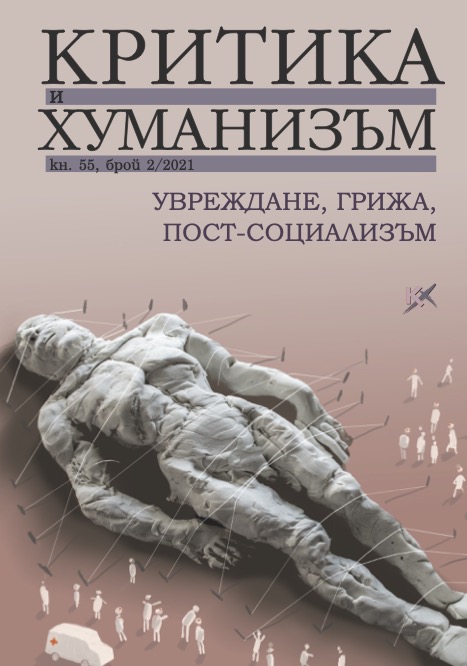Типове колебания относно задължителните детски имунизации в интеракционната рамка лекар-пациент
Types of Hesitancy about Mandatory Child Vaccinations in the Doctor-Patient Interaction Framework
Author(s): Veronika Dimitrova, Maria MartinovaSubject(s): Social Sciences, Sociology, Health and medicine and law, Demography and human biology
Published by: Фондация за хуманитарни и социални изследвания - София
Keywords: immunization/vaccination; trust; hesitancy
Summary/Abstract: This article is devoted to parental hesitancy about the mandatory childhood immunization schedule in Bulgaria. The term ‘hesitancy’ describes the growing uncertainty and actions to delay or refuse childhood vaccinations. In the specific analysis based on semi-structured interviews with parents, the issue of vaccine hesitancy is examined through the lens of the doctor-patient interaction framework. The focus is on outlining the types of vaccine hesitancy and the reasons for them. New parenting styles and parental responsibilization, in turn, undermine parents’ trust in GPs; parents are becoming experts on their children. It seems that the doctor-patient relationship has become more horizontal. This kind of parental ‘expertise’ in turn leads to the emergence of a common enemy of the overall construction of the child’s body – ‘terrible chemistry’, unnecessary interventions in the body, where vaccines are among the ‘risky’ and ‘dangerous’ interventions. Thus, vaccination turns out to be a process of balancing between fears – of the disease and of its side effects. Hence, respondents also raised the issues of ‘coercion to vaccinate’ and ‘parents’ right to choose’, which contradict their understanding of parental role and responsibility.
Journal: Критика и хуманизъм
- Issue Year: 2/2021
- Issue No: 55
- Page Range: 281-320
- Page Count: 40
- Language: Bulgarian
- Content File-PDF

